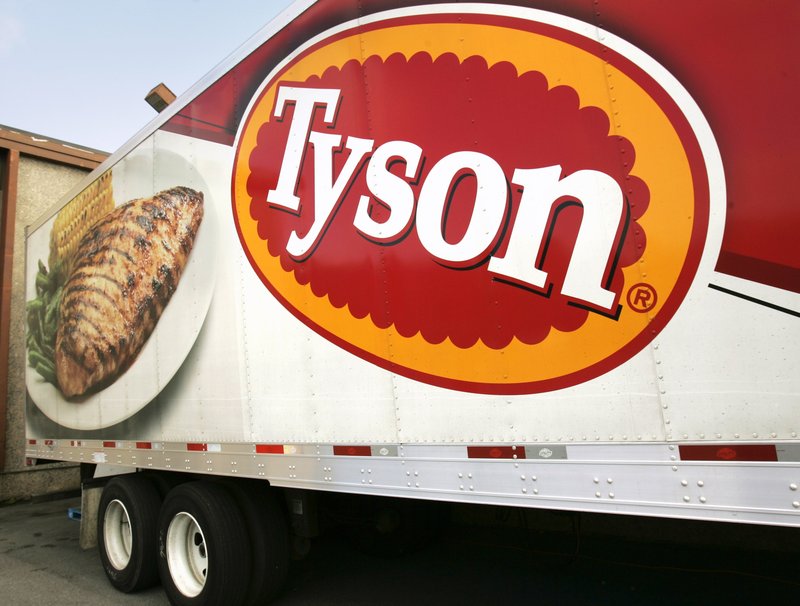WASHINGTON -- Congressional lawmakers pressed meatpacking executives for answers on Wednesday as American families continue to face soaring beef prices.
Donnie King, president and chief executive officer of Tyson Foods, testified via video before the House Agriculture Committee and joined other meatpacking executives in denying that their companies coordinated on issues affecting prices and supply.
Chief executives from four major meatpacking companies, including Tyson Foods, appeared before lawmakers to face questions about their company operations in light of elevated prices facing the American public.
Consumer prices for meat were up 14.8% last month compared with the same time a year ago, according to figures from the U.S. Labor Department. Prices for beef and veal rose 16% during that time frame, according to the figures.
"Our ranchers are being forced to sell their cattle at a loss. Our four meat packing companies are making record profits," said U.S. Rep. David Scott, a Georgia Democrat. Scott, who is chairman of the House committee, said the companies have reported billions of dollars in profits last year alone.
The chief executives argue that inflation and a labor shortage tied to the coronavirus pandemic contributed to high meat prices. Meanwhile, cattle producers argue they are playing against a rigged system in which a few firms hold too much control.
U.S. Rep. Randy Feenstra, a Republican from Iowa, said the processing of cattle is mostly operated by four major meatpacking entities, which control most of the market. The market share allows them to control the price through contracts and allows them to manage the number of animals being slaughtered through processing line speeds.
"The system is set up where the packers will never see a loss, creating massive guaranteed profits while rural farmers lose their livelihoods," he said.
King pushed back against the narrative that prices are up as a result of the consolidation of the beef industry.
Responses to the pandemic made it difficult to process all the available cattle, King said. And around that same time, the demand for beef jumped with restaurants closed and Americans cooking more at home, he said.
"Simply put, production could not meet the consistently strong demand. Economists have agreed with this assessment, which underscores that the market, not Tyson, sets the price for cattle and beef," he said.
In November, Tyson Foods reported 2021 fourth-quarter earnings of $1.36 billion, more than twice the amount earned in the same period the year before.
Tyson Foods, one of the largest food companies in the world, is based in Springdale. Also testifying at the congressional hearing were the chief executives from Cargill Inc., JBS USA and the National Beef Packing Company LLC.
Gilles Stockton, who raises sheep and cattle in Montana, told lawmakers that there would be many arguments about supply and demand.
"But it is also about having an entire meat production system funneled through a very narrow bottleneck, where packers can exploit both producers and consumers," he said Wednesday.
U.S. Rep. Abigail Spanberger, a Democrat from Virginia, said many cattle producers in her district have been in the industry for generations. Those producers have shared how anti-competitive practices from larger meatpackers are stacking the deck against consumers and cattle producers, she said.
She also touched on the impact of economic pressures.
"Farmers contemplate taking their lives because the generations of work that went into creating their family farms are slipping out of their fingers," Spanberger said.
Information for this article was contributed by Nathan Owens for the Arkansas Democrat-Gazette.
